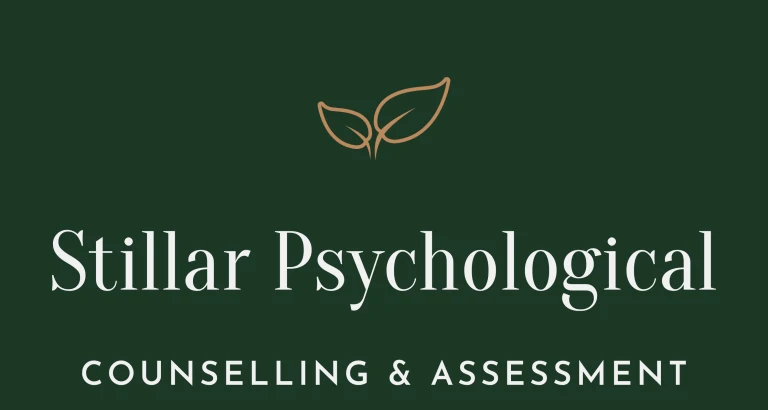Depression can feel like a relentless shadow over your life, but with the right therapeutic approach, you can find your way back to lightness and stability. At Stillar Psychological, we acknowledge that each person’s journey with depression is unique, which is why various forms of therapy can be particularly beneficial. Here’s a closer look at 15 effective therapies that may resonate with your needs. Each method offers distinct benefits and may be the key to unlocking a more fulfilling and balanced life. We’re here to guide you through these options to find the best fit for your individual circumstances.
Cognitive Behavioral Therapy (CBT)
Cognitive Behavioral Therapy, commonly known as CBT, stands out as a highly effective treatment for depression by targeting negative thinking patterns that can spiral into serious mood issues. It operates on the principle that thoughts, feelings, and behaviors are interconnected, and that changing one can positively influence the others. During CBT sessions, therapists help you identify and scrutinize your pessimistic thoughts and beliefs.
By challenging these distortions and replacing them with more realistic and positive ones, you can reduce the emotional distress they bring and foster better behavioral choices. Typically, CBT involves practical exercises both in sessions and as homework, making it an active therapy that empowers you to take control of your well-being. It’s particularly effective for those who appreciate structured guidance and measurable progress in therapy, as it offers clear goals and timelines for achieving them.
Dialectical Behavior Therapy (DBT)
Dialectical Behavior Therapy (DBT) goes a step further than traditional psychotherapies by embedding mindfulness as a fundamental element to control stress and regulate emotions. Originally developed for treating borderline personality disorder, DBT has since been modified to support individuals with depression, particularly those experiencing intense and variable emotions. This therapy is based on the principle of dialectics—the reconciliation of opposites—and seeks to aid you in achieving a balance between accepting your current situation and striving for improvement.
DBT emphasizes the development of four key skills: mindfulness, distress tolerance, emotion regulation, and interpersonal effectiveness. These skills are crucial for building resilience and maintaining mental stability. By teaching you to navigate emotional storms and engage more meaningfully with others, DBT fosters a more stable life and reduces depressive symptoms linked to emotional dysregulation.
Psychodynamic Therapy
Psychodynamic Therapy explores the psychological roots of depression, exploring unresolved conflicts and misaligned emotions that may stem from past experiences, particularly those shaped during early childhood. This approach is based on the understanding that unresolved issues can manifest as depressive symptoms if not consciously addressed. Through sessions with a trained therapist, you explore these past experiences and their impact on your current behavior and feelings.
The therapy involves examining recurring patterns in thoughts, emotions, and beliefs, as well as relationships that may be contributing to your present state. By bringing these unconscious processes to the fore, psychodynamic therapy aims to increase your self-awareness and change old patterns into healthier ones. This deep introspective work can lead to significant emotional healing and lasting change, offering a profound and meaningful way to understand and treat depression.
Interpersonal Therapy (IPT)
Interpersonal Therapy (IPT) is tailored specifically to address the interpersonal issues that often lie at the heart of depressive disorders. It operates on the premise that personal relationships and life transitions can significantly impact your mood. IPT helps you identify and address these problematic areas, such as unresolved grief, role transitions, relationship conflicts, and social isolation. By focusing on improving communication skills and increasing social support, IPT aims to alleviate the symptoms of depression.
Sessions are typically time-limited, structured, and focused on here-and-now issues rather than probing into past experiences. Through IPT, you develop not only a greater understanding of how your relationships affect your mood but also the skills to interact more effectively with those around you. This therapy is particularly beneficial for those whose depression has distinctly impacted their interpersonal relationships, helping to restore and rebuild healthy, supportive connections.
Behavioral Activation
Behavioral Activation treats depression by moving away from the habits that fuel depressive feelings and engaging more in activities that bring pleasure or a sense of accomplishment. This therapy is based on the theory that depression is sustained by a cycle of avoidance and withdrawal from routine or valued activities, leading to more profound feelings of sadness and isolation. In Behavioral Activation, you work with a therapist to identify specific activities and goals that are aligned with your values and interests, regardless of your current motivation levels.
The approach encourages gradual steps to reintegrate more active, engaging behaviors into your daily life. By tracking your experiences and the emotions associated with different activities, you can begin to see the direct benefits of positive engagement in combating depressive symptoms. This method is particularly effective for those who feel stuck in a rut or find themselves avoiding social and active pursuits due to their depression.
Mindfulness-Based Cognitive Therapy (MBCT)
Mindfulness-Based Cognitive Therapy (MBCT) is an innovative form of therapy that combines traditional cognitive behavioral techniques with mindfulness strategies to help prevent the recurrence of depression, particularly in individuals who have suffered multiple episodes. This approach teaches you how to focus on the present moment and accept it without judgment, which can disrupt the automatic processes often responsible for triggering depressive episodes.
By learning to pay attention to thoughts and feelings without dwelling on them, you can better recognize early signs of emotional downturn and address them proactively. MBCT involves regular mindfulness practices like meditation, breathing exercises, and yoga, which help cultivate a state of awareness and calm. The skills developed through MBCT are beneficial not just for managing depression but also for reducing stress and enhancing overall emotional resilience, making it a powerful tool for long-term mental health maintenance.
Acceptance and Commitment Therapy (ACT)
Acceptance and Commitment Therapy (ACT) is an active form of psychotherapy that combines acceptance and mindfulness techniques with commitment and behavioral strategies to boost psychological flexibility. For individuals grappling with depression, ACT centers on encouraging acceptance of one’s thoughts and emotions, steering clear of resistance or guilt. It advocates for the non-judgmental observation of these thoughts and feelings, followed by a commitment to take steps that are in harmony with one’s core values, thereby enriching the quality and purpose of life.
Through techniques such as metaphor, paradox, and experiential exercises, you learn to detach from unhelpful thoughts and develop greater clarity about what you truly value. This shift can lead to significant behavioral changes that promote psychological health and well-being. ACT is particularly effective for individuals who feel stuck, as it encourages engagement with life in a way that transcends current symptoms of depression.
Cognitive Analytical Therapy (CAT)
Cognitive Analytical Therapy (CAT) melds principles from psychodynamic and cognitive behavioral therapies into a coherent, time-limited method that assists you in dissecting the behavioral patterns contributing to your depression. In CAT, you collaborate with a therapist to chart out these behaviors alongside the corresponding thoughts and emotions, tracing their development and persistence over time. This therapy zeroes in on identifying these recurring patterns, comprehending their roots, and devising strategies to transform them into more constructive behaviors and reactions.
This tailored approach provides clarity on how your historical experiences and interpersonal relationships have molded your current behavior, paving the way for transformative changes. CAT sessions typically blend one-on-one discussions with written exercises, including the creation of a reformulation letter—a fundamental document that encapsulates the key insights and agreements from your sessions, serving as a roadmap for ongoing change. Engaging in CAT allows you to deepen your self-awareness and proactively make adjustments that improve your mental health. Moreover, the competencies and understanding you develop through this therapy equip you to more adeptly face and manage future life challenges, enhancing your long-term emotional resilience.
Art Therapy
Art therapy is a form of expressive therapy that uses the creative process of making art to improve a person’s physical, mental, and emotional well-being. It taps into the power of creativity to help individuals express themselves in ways that words cannot always capture. For those dealing with depression, art therapy provides an outlet for expressing feelings and thoughts that might be hard to articulate.
This process can unearth underlying emotions and conflicts, facilitating a deeper understanding and processing of them. The act of engaging in artistic activities—whether it’s drawing, painting, sculpting, or another medium—can also be inherently soothing and meditative, offering a respite from depressive thoughts. Art therapy is conducted in a supportive environment under the guidance of a trained therapist, ensuring a safe space where individuals can explore their emotions and work towards healing.
Narrative Therapy
Narrative Therapy is centered around the concept that our identities are shaped by the narratives or stories we conceive about our lives. When dealing with depression, individuals often construct internal narratives that are negative and self-defeating. Narrative therapy helps you reframe these stories in a more positive and empowering way. In this therapeutic approach, you are encouraged to become an active participant in reshaping your own story, identifying and modifying the narratives that contribute to your depression.
This process involves examining the broader context of these stories, recognizing external influences, and reducing the focus on blame or inadequacy. By reauthoring these narratives, you can shift your perspective, promote resilience, and foster a greater sense of control over your life. This therapy is especially beneficial for those who feel overwhelmed by their circumstances, helping them to see themselves as separate from their problems.
Exposure Therapy
Exposure Therapy is a psychological treatment that helps individuals confront their fears in a safe, controlled environment. This approach is often used to treat depression that coexists with anxiety disorders, such as phobias or PTSD, where avoidance of certain situations or stimuli plays a significant role in maintaining the disorder. The therapy involves gradual, repeated exposure to the fear object or context without any danger, to help desensitize the individual to the emotional distress associated with it.
By facing these fears, you can gain more control over your reactions, reducing the power these anxieties have over your life. Exposure therapy can be conducted using real-life situations or through imagined scenarios and is carefully paced according to your specific needs and tolerance levels. This method not only helps alleviate depressive symptoms linked to fear and avoidance but also empowers you to engage more fully with life.
Group Therapy
Group Therapy offers a unique environment where individuals can come together to share experiences and support each other under the guidance of a trained therapist. For those battling depression, group therapy provides a platform to feel less isolated and more understood by connecting with others facing similar challenges. It facilitates a sense of belonging and community, often lifting the veil of loneliness that depression can bring.
During group sessions, members share their struggles and successes, offering insights that can lead to breakthroughs in personal understanding and healing. The collective wisdom and varied perspectives within a group can also inspire new coping strategies and ways to manage depressive symptoms. This therapeutic approach not only promotes personal growth and emotional resilience but also enhances social skills and empathy, contributing to a holistic recovery process.
Music Therapy
Music Therapy utilizes music within a therapeutic setting to address physical, emotional, cognitive, and social needs of individuals. For those experiencing depression, it can be a powerful tool for expression and healing. This therapy involves engaging with music in various forms, including listening, singing, playing instruments, or composing, providing a multi-sensory experience that can help to improve mood and reduce stress.
Music therapy can facilitate communication, express feelings, and foster emotional release, often reaching areas of the psyche that are inaccessible through traditional talk therapy alone. It can also stimulate the brain in unique ways, promoting positive changes in neurological functioning related to mood regulation. Certified music therapists tailor sessions to individual needs, ensuring a safe and supportive environment where you can explore personal issues and work toward recovery at your own pace.
Couples Therapy
Couples Therapy focuses on improving the emotional and functional aspects of relationships, which can significantly affect individual mental health and well-being. For those whose depression is linked to marital or relationship issues, couples therapy can be an invaluable resource. This form of therapy helps partners understand each other’s needs, communicate more effectively, and resolve conflicts in healthier ways.
It encourages transparency and support, which can alleviate stress and promote a more positive home environment conducive to managing depression. By addressing underlying relational dynamics that contribute to depressive symptoms, couples therapy not only aids in improving the relationship but also individual mental health, fostering a mutual support system that can be crucial for those dealing with depression.
Ecotherapy
Ecotherapy, also known as nature therapy, involves interactions with the natural environment as a form of therapeutic intervention. This approach recognizes the intrinsic link between your wellbeing and the health of the environment, promoting healing through outdoor activities like gardening, nature walks, or animal-assisted therapies. For individuals suffering from depression, ecotherapy can offer significant benefits by enhancing mood through direct contact with nature, which is known to reduce symptoms of stress, anxiety, and depression.
Activities in a natural setting can help reset your internal rhythms, such as sleep cycles and cortisol levels, improving overall mental health. Engaging with nature also provides a calming, meditative experience, helping to clear the mind and foster a sense of peace and connectedness. This therapy is particularly beneficial for those who feel disconnected or confined by urban settings, offering a refreshing escape that nurtures both the body and spirit.
We are dedicated to offering a comprehensive array of therapeutic options aimed at assisting individuals grappling with depression. Our skilled and informed therapists are well-versed in a variety of treatment methods, ensuring that the care you receive is customized to meet your unique needs. By working with us, you’ll gain access to a nurturing environment crafted to support your journey toward overcoming challenges and achieving mental wellness. In the heart of this commitment, Stillar Psychological stands as your partner in navigating the path to improved mental health.





















